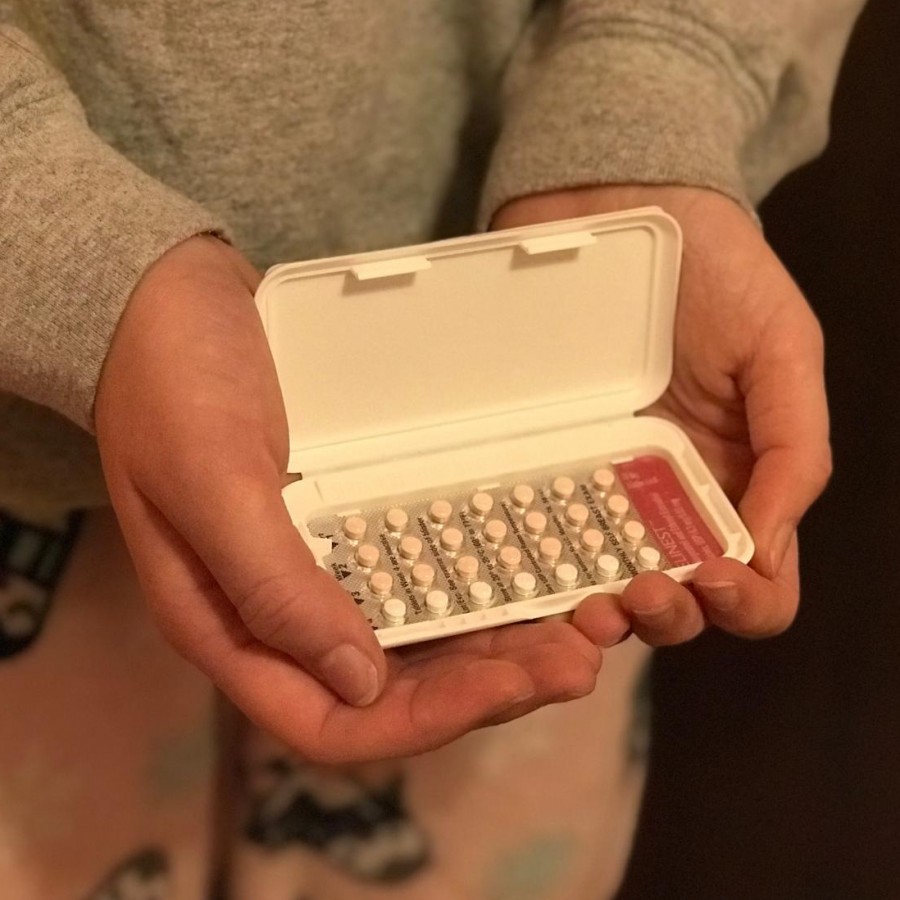Social stigmas control how people treat certain topics and how they’re viewed. While birth control is something many women need for their health, the discussion of this subject among teenagers remains taboo.
Birth control comes in many different forms, such as the pill, the intrauterine device (IUD) and the implant. The pill is a hormone capsule that is taken daily, the IUD is a device inserted into the uterus and the implant is a small rod that is placed inside a person’s arm.
Though many women use these methods to regulate their menstrual cycles, reduce acne and treat migraines, the assumption that birth control is solely used to prevent pregnancy still circulates in conversations. Senior, Ella Rekow, said, “I think it’s taboo because everyone still thinks it’s for sex when in reality, most use it for its side effects, like how I use it for dealing with my hormonal acne and my period.”
Even young women who use birth control as a method of regulating their periods and menstrual symptoms can feel uncomfortable openly discussing it simply because menstruation is commonly viewed as embarrassing. Senior, Clare Basala, said, “Women, in general, should not be ashamed of contraceptives or their menstrual cycles. Society has misconstrued these normal things into being embarrassing for women and teens.”
Many people blame the slow progression of women’s rights for the social stigma surrounding birth control. In the late 1800s, when safe contraceptives were first being explored in the U.S., these efforts were stopped short by the Comstock Act. This act, passed in 1873, banned the possession and distribution of all information or devices related to contraception or abortions, due to their “obscene” nature. The Comstock Act remained in effect for almost a century before being found unconstitutional in 1965.
However, young women today recognize the importance of taking initiative and combating the long-standing views on birth control. Ava Thomsen, a PV alum, said, “Women’s rights are changing, which means birth control is easier to access, and people are afraid to let women make their own decisions regarding childbirth and families.”
Another factor that seems to play a part in the avoidance of birth control as a topic of conversation is a lack of education about it. Most teenage girls have a holistic knowledge of birth control methods because it’s a necessity for many of them. However, young men are not nearly as educated on the importance and functionality of birth control. Srikanth Ganesh, junior, said, “I’m comfortable talking about birth control with my female friends, but I’m not 100 percent sure how it works.”
False information about birth control also hinders accurate education. Senior, Nick Kamp, said, “I’ve heard a lot of jokes and myths about birth control go around the school, but I usually just dismiss them because most of them turn out to be untrue.”
“I’ve heard of people thinking it’s the abortion pill and that by taking it, you are killing a fetus inside you. That is 100 percent wrong,” said Amy Oberhart, senior. She added, “The only way to get people comfortable with talking about birth control is to educate teens about it and stop treating it like a shameful thing.”
By opposing myths and spreading accurate information, teenage students are changing the social stigma about birth control.











Katherine Kuli • Oct 25, 2020 at 1:17 pm
Hi, my name is Katherine Kuli and I am currently doing a thesis on the social stigmas of contraception and how it affects current legislation and I found your article in my research. I was wondering if there was any follow-up reporting or any interview data that you would not mind sharing. You can reach me by email at katherine.kuli@pulaskiacademy.org.
Best Regards,
Katherine Kuli